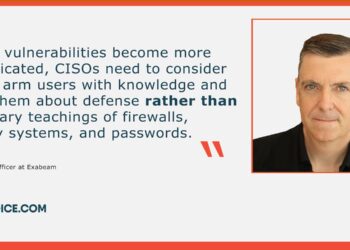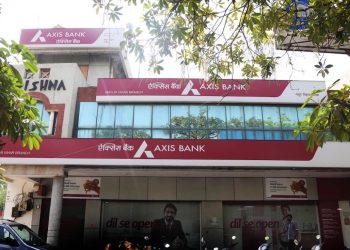The growth of blockchain technology has sparked significant interest across various sectors. However, many industries have found it difficult to use this technology due to regulatory hurdles and technical challenges. To understand how business leaders view this shift, CXOVoice conducted an exclusive email interview with Sid Ugrankar, Co-founder and CEO of Qila.io, a next-generation Blockchain-as-a-Service (BaaS) platform. We dive deep into the company’s innovative approach to redefining the future of finance through blockchain technology. Sid Ugrankar shares the motivations behind Qila’s launch, and the transformative potential of tokenization across diverse industries.
1. What motivated the launch of Qila.io, and how does it aim to change the future of finance using blockchain technology?
The launch of Qila.io was motivated by a very reality-based challenge: as blockchain technology was receiving global spotlight, enterprise adoption across industries such as finance, governance, and healthcare was agonizingly slow. The Qila founding team understood that what was lacking wasn’t the tech—it was the infrastructure and the ease of access.
Thus, Qila was formed to deconstruct the intricacy of blockchain and offer businesses and institutions tools for embracing decentralized systems without requiring intense technical knowledge. Through platforms such as ARK and ARK+, Qila is redefining finance by allowing institutions to tokenize assets, automate trust using smart contracts, and create tamper-proof digital environments with plug-and-play ease.
2. How do you envision tokenization revolutionizing industries outside finance?
Tokenization is typically defined in the context of finance, but the reality of its possibility is much greater. Fundamentally, tokenization is all about capturing value and ownership as a digital, unalterable representation.
In property, it is about fractional ownership and fluid property markets.
In medicine, it provides for tamper-evident patient records and consent processes.
In the supply chain, product history can be traced and verified.
Degrees and certifications can be issued as verifiable NFTs in education.
Tokenization makes access democratic, more transparent, and allows for unprecedented interoperability across industries. It’s not a disruption in tech—it’s a paradigm disruption.
3. How are Qila’s platforms, such as Ark, Ark+, and PrivaSea, facilitating real-world blockchain applications across industries?
Qila’s platforms are designed for both:
ARK is a business-oriented, multi-tenant blockchain space ideally suited for businesses beginning their Web3 journey. It supports minting of NFTs, token issuance, and seamless integrations with no infrastructure worries.
ARK+ is a private, enterprise-sized environment with improved scalability, support for multi-protocol blockchains (like Hyperledger and Hedera), and custom smart contract processes.
PrivaSea is Qila’s security wallet layer used for tokenized storage of data, assets, credentials, or proofs. It is best suited for government and healthcare use cases where data integrity is paramount.
Together, these platforms are assisting finance, real estate, government, and health tech customers in creating significant, compliant blockchain apps that function within the real world.
4. What are the largest challenges you’ve witnessed in corporate adoption of blockchain and tokenization in India? Do they lie in the regulatory or technical realm?
Both, but the underlying biggest challenge is education.
Regulatory issues hang over the landscape, particularly when “tokens” are confused with “crypto.” Shortage of dedicated legislation involving non-cash tokens, smart contracts, and decentralized storage makes some CIOs feel apprehensive.
Technologically, it is difficult to incorporate blockchain into traditional systems. Legacy IT architecture was not built for decentralization, therefore interoperability is an impediment.
Yet, the deeper challenge is culture. There’s still a pervasive ignorance about how blockchain is not just crypto—it’s a trust protocol. That’s what Qila seeks to fill in.
5. CBDCs are on the rise across the world — how do you see Qila playing a part within India’s future CBDC landscape?
Qila is well placed to act as a private infrastructure layer for the use cases of CBDCs.
CBDCs are digital currencies issued by the government, but if they are going to survive past pilots, they’ll require smart use cases—subsidy payments, supply chain payments, welfare automation, etc.
Qila would make possible:
– Smart contracts that automatically disburse CBDCs on conditions.
– Sector-specific wallets constructed atop PrivaSea.
– CBDC integrations with tokenized assets for auto-reconciliation.
“We don’t want to print money. We want to construct the roads it travels on.”
6. In your view, how will CBDCs affect financial inclusion, cross-border payments, and anti-fraud?
Financial inclusion: A wallet for a CBDC on a regular smartphone or feature phone could make tens of millions of people unnecessary for a traditional bank, bringing them into the formal economy.
Cross-border transfers: CBDCs could eliminate middlemen, reduce fees, and enable real-time, low-cost transfers across borders.
Fraud prevention: With traceability and programmability on-chain, CBDCs would greatly reduce leakages in subsidies, pensions, and procurement.
But only if there’s a robust infrastructure layer underneath—which is where companies like Qila are entering the scene.
7. What opportunity do you see private blockchain infrastructure companies like Qila having alongside government-driven CBDC initiatives?
Private players such as Qila will be key co-architects of the ecosystem. Issuance and policy will be controlled by central banks, but infrastructure, integration, and innovation will originate in the private sector.
Imagine it as a stack:
– The RBI issues the CBDC.
– Qila creates the APIs, wallets, and use case frameworks.
– Enterprises and developers integrate into this stack to create solutions.
In the process, Qila renders the CBDC not just legal tender—it’s programmable, spendable, and scalable.
8. From your journey so far, what’s one surprising lesson you’ve learned about building a Web3 company in India?
The biggest surprise? It’s not the technology—it’s the storytelling.
Regardless of how great your stack of blockchains is, it will never matter if the decision-makers do not understand what it does and why they need it.
Qila learned early on that every meeting is also a masterclass—educating people on what blockchain is not and what it can be.
But when clients understand, the excitement has no bounds. From the state governments to the startups, India is eager, ambitious, and prepared. What India requires is the direction, organization, and faith—and that is what Qila exists to offer.




















